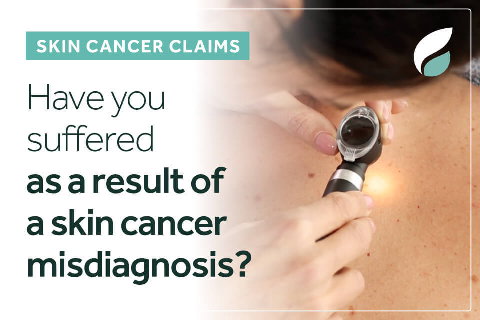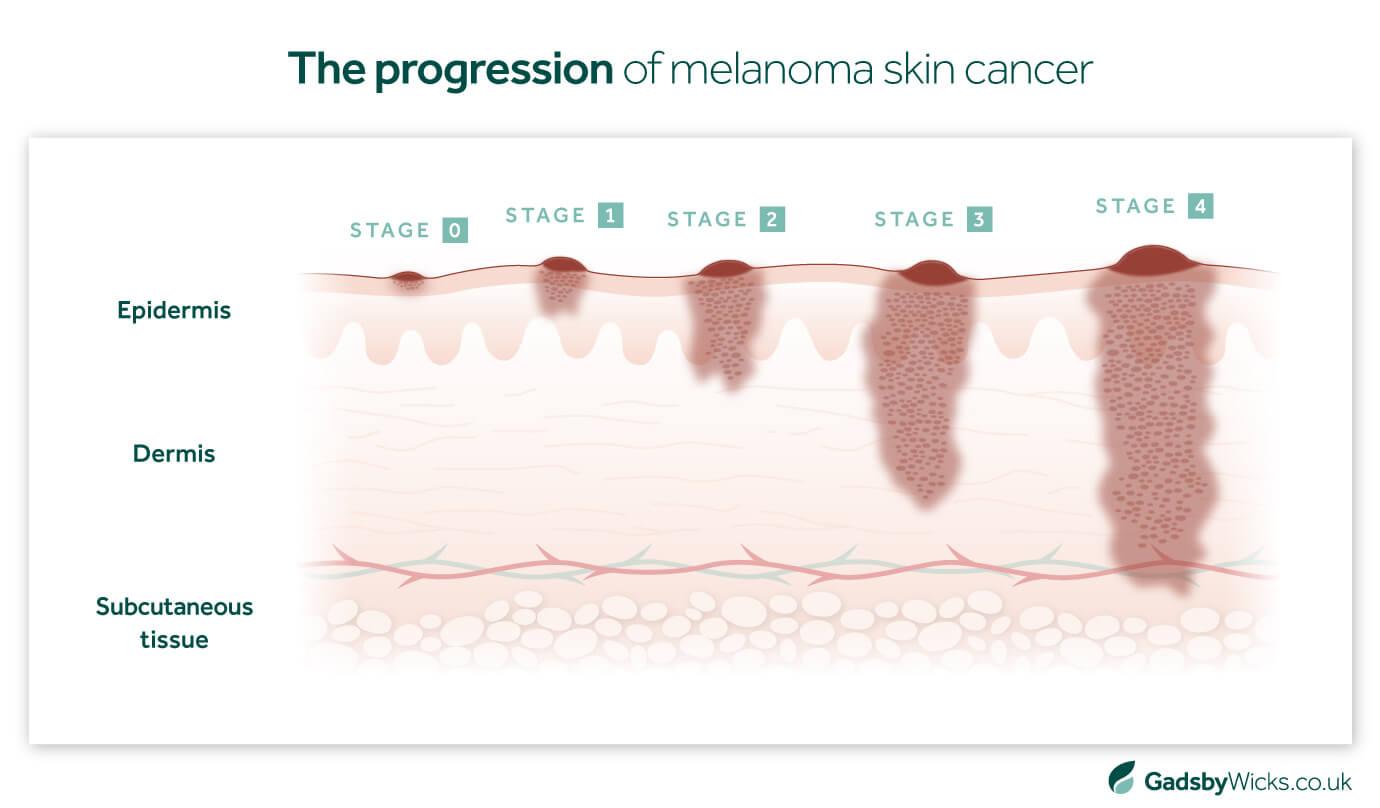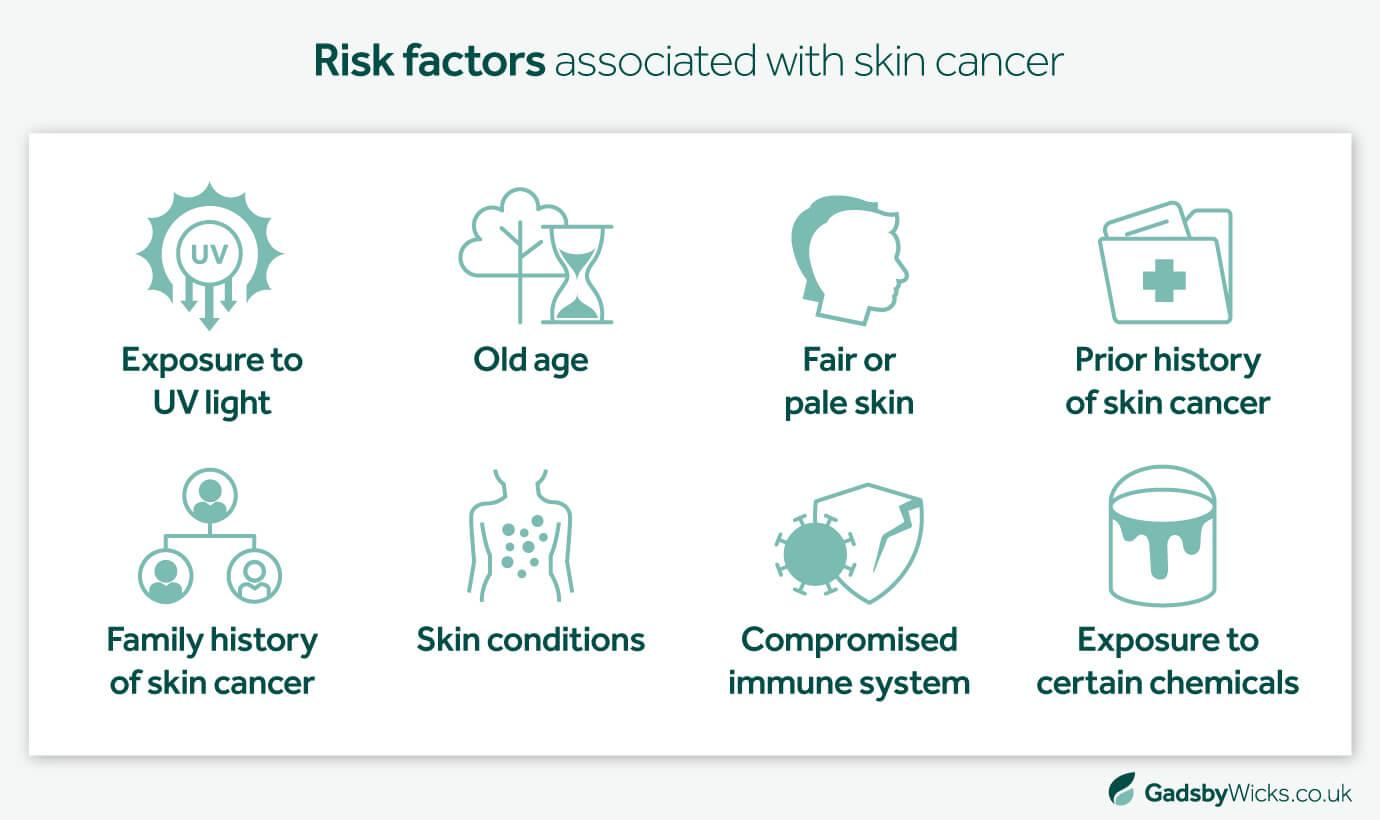- Home >
- Skin Cancer Claims
Medical professionals are trained to spot the difference between a regular mole on your skin and precancerous or cancerous lesions. When clear signs are missed, it can have serious, life-threatening implications.
If this has happened to you or someone you love, our skin cancer claims solicitors can help you find closure and hold those responsible accountable. With over three decades of experience and millions recovered in compensation, we can prove your claim and recover damages to support your financial future.

Do you have a skin cancer claim?
Because skin cancer is often easy to detect, most cases are spotted early on. But when red flags are overlooked or wrongly identified as harmless, these delays can allow cancer to spread, affecting a person’s treatment options and long-term health.
Whether a doctor failed to perform a correct examination or a GP misplaced your test results, we can help you discover what caused your suffering and pursue the compensation you are owed. With decades of specialist experience by your side every step of the way, trust us to fight for your right to justice.

The specialist skin cancer claims solicitors for Essex & East Anglia
For over 30 years, we have been the true experts in skin cancer claims, recouping millions in compensation for our clients and securing the answers they need to move on.
We take a complete ‘no win, no fee’ approach – you don’t pay a penny unless we win your case. This commitment helps reassure you and lets us dedicate the time to investigate every piece of evidence. Through this unrivalled attention to detail, we present the best case possible on your behalf, with 96% of our claims resolved out of court.
What does our skin cancer claims process look like?

A free initial consultation
Call us, request a callback or complete our online form and we’ll assess if you have a valid medical negligence claim.

Funding your claim
Discover the ways we can fund your claim without you paying a penny at any stage of the process.

Investigating evidence
We gather medical records, witness statements and more to learn what happened to you and prove your claim.

Instructing independent medical experts
We work with impartial, experienced medical experts to establish whether your injuries were due to substandard medical care.

Valuing your claim
We assess your health and financial losses to accurately estimate how much compensation your claim is worth.

Presenting your case
We contact the Defendants and the Courts on your behalf to set out your allegations and receive a response.

Negotiating a settlement
We work to achieve a fair settlement for you outside the courtroom – this is how 96% of our cases end.

Preparing for Trial
If we must proceed to Trial, we fully prepare you for what to expect so you receive the right result in court.
FAQs about skin cancer misdiagnosis claims
What is meant by a skin cancer misdiagnosis?
Like all forms of cancer, if skin cancer is diagnosed in its early stages, treatment is more likely to be effective and protect someone’s long-term prognosis. For instance, Stage 1 melanoma has a near-100% survival rate for five years or more after diagnosis.
For some forms of melanoma, early diagnosis and treatment can be crucial, as these moles and lesions can grow quickly and spread to a patient’s other organs, bones or blood. This can make treatment much more severe and long-lasting, and reduce a patient’s long-term survival rate.
A skin cancer misdiagnosis occurs when a healthcare professional fails to identify the warning signs of skin cancer, leading to a misdiagnosis or a delay in diagnosis. This can mean the cancer progresses to later stages and potentially spreads to a patient’s other organs, bones or blood.

Depending on how long it takes for a diagnosis to be reached, this delay can significantly change someone’s treatment options and long-term survival prospects.
How can skin cancer negligence happen?
This form of cancer negligence claim will often start with a GP or other healthcare professional mistaking the differences between a regular mole and either a Basal Cell Carcinoma (BCC) or a Malignant Melanoma (MM). As noted earlier, BCCs are typically not life-threatening, while MMs can prove fatal if not caught early enough.
A GP or another medical professional should be able to identify red flags of skin cancer, as they are well-known and often apparent. A cancerous mole or lump will often be:
- Bleeding or painful
- Itching
- Changing colour
- Growing in size
- Irregularly shaped
These risk factors are typically recognised by a GP and the patient is referred to a dermatologist for further investigation. From there, the dermatologist can refer the patient for a biopsy to confirm the diagnosis and start treatment.
Sadly, there are instances where these red flags are either overlooked or believed to be a harmless, benign mole or lesion by a healthcare professional. If this happens and you are diagnosed with skin cancer at a later date, you could have grounds to make a medical negligence claim.
What situations can lead to a successful skin cancer compensation claim?
Examples of negligent acts that may be grounds for a successful skin cancer claim include:
- Failure to perform a proper examination
- Not taking all signs or symptoms into account, such as a mole being itchy
- Misinterpreting a mole or lesion as benign or evidence of another skin condition
- Failure to refer a patient to a dermatologist, plastic surgeon or another specialist
- Ordering the wrong test where the cancer would not be visible
- A biopsy taken from the wrong location, or not taking enough of a sample
- Results of a test or scan being misinterpreted or misreported
- Failure to communicate the results of tests or scans with the patient
- Misdiagnosis of the stage or type of cancer leading to ineffective treatment
If any of the above results in a delay that changes your treatment options or prognosis for skin cancer, you could be entitled to medical misdiagnosis compensation.

View our National and Essex Medical Negligence Statistics post for more industry insight.
How can I prove I have a valid skin cancer claim?
To determine whether a healthcare professional breached their duty of care towards you leading to a skin cancer claim, we will work with an impartial medical expert in the same role as the professional accused of the breach of duty.
By outlining the evidence of the case to these professionals, they will inform us what steps should have been taken based on your condition at the time of your diagnosis. This helps us paint a picture of how you should have been treated and the steps that would have followed, which we can compare to what happened.
It is important to note that a skin cancer misdiagnosis claim can only be brought if the delay affects the treatment options or prognosis. For example, if you were misdiagnosed by your GP, but then saw another healthcare professional a week later who referred you, this delay may not have been significant enough to change anything, meaning there is nothing to claim for.
Also, a misdiagnosis or delay in diagnosis may not be grounds for a claim if there was reasonable cause to pursue other diagnoses before this. This could be because the symptoms were more likely to be another condition, or the need to rule out conditions that present a more urgent concern to someone’s health.
How do you establish causation in a skin cancer negligence claim?
It can sometimes be difficult to determine who is responsible for a skin cancer misdiagnosis, or if the cause of the claim is due to delayed treatment. Working with independent healthcare professionals, including specialist oncologists, we will establish when it is most likely that a cancer progressed from one stage to another, resulting in a change to the treatment options and prognosis.
In medical and clinical negligence claims causation is judged on the Balance of Probabilities – whether something was more likely than not to be the case. Therefore, an expert will provide an opinion on when it is most likely that your skin cancer progressed to a later stage.
For this reason, we may look to establish the causation of your injuries before investigating whether the duty of care was breached. This is helpful because:
- It helps us identify which healthcare professionals could and could not have made a difference with an earlier diagnosis, ensuring that no time is wasted pursuing irrelevant defendants
- It informs us whether your condition could have been treated sooner and had a better outcome
How can skin cancer claims compensation help me?
The compensation awarded following a successful skin cancer claim is designed to help return you to the position you would have been in had you been diagnosed and treated at the right time. Or, when this is not possible, provide financial support for the changes made to your life moving forward.
In these types of claims, compensation is often used to cover the costs of:
- Loss of earnings caused by more severe and extensive treatments
- Private medical treatments, such as chemotherapy, radiotherapy, surgery, etc.
- Any necessary equipment or aids
- Therapies for psychological support
Sadly, a delay in diagnosing melanoma cancer could greatly affect someone’s life expectancy, causing them to pass away earlier than if the condition had been diagnosed sooner. In these instances, it is possible for beneficiaries of the claimant’s estate and those who were dependent on services provided by the claimant to continue to pursue their claim.
While no amount of compensation can reduce the loss of a loved one, it can help ease the financial burden on their dependents, and support their lives beyond this tragedy. Learn more about making a negligence claim following the death of a loved one.
Contact our expert skin cancer claims solicitors
If you or your loved one’s health was affected by negligent skin cancer treatment, speak to someone about your options. Our team is here to listen and advise you on your next steps.

Lexcel accredited medical negligence claims solicitors
We are proud to be a Lexcel-accredited practice. The accreditation is a mark of quality and comes directly from the Law Society.
A recent assessment described us as a “Centre of Excellence” and we continue to operate to the highest standards across all main areas of our field. These include client care, case management, financial management, structure and strategy, people management, risk management, information management and file management.








